Rebecca Hoogs is the author of the chapbook, Grenade (GreenTower Press, 2005) and the poetry collection, Self-Storage (Stephen F. Austin University Press, 2013), which was a finalist for the 2013 Washington State Book Award in Poetry. Her poems have appeared in Poetry, AGNI, FIELD, Crazyhorse, Zyzzyva, the Journal, Poetry Northwest, the Florida Review, Cincinnati Review, among others. She won the 2010 Southeast Review poetry contest and is the recipient of fellowships from the MacDowell Colony and Artist Trust of Washington State. Hoogs is the Program Director for Seattle Arts & Lectures and occasionally co-directs and teaches in the Summer Creative Writing in Rome program for the University of Washington.
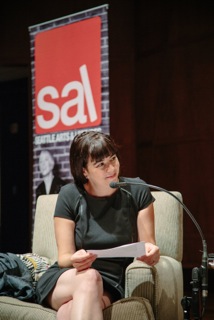 What makes your organization and its programs unique?
What makes your organization and its programs unique?
I think what makes Seattle Arts & Lectures (SAL) unique is not only the breadth of our programming, but the way we interweave our public programs with our education program, Writers in the Schools (WITS), whenever we can. At each of our lectures and readings, we open the evening by featuring a young student writer reading their original poem, story, or memoir. After, we encourage the young writer to sit beside the featured author at the booksigning table—two peers, side by side—to sign copies of their work for the audience. These moments in the spotlight can be utterly transformative for our young writers—often we hear that it’s the first time their parents are seeing them in such a positive light. These are magical moments and it’s an honor to use the SAL stage not only to present the best authors of our time to Seattle’s readers and writers, but to give them a glimpse of the best writers of the future, as well.
Many of these writers also visit a WITS classroom while they are in Seattle. For instance, James McBride, the opening speaker in this year’s Literary Arts Series, spoke with a group of several hundred students at Garfield High School (where some classes were reading his 1996 memoir, The Color of Water). Bringing real-life authors to students during the school day is just as important to us as bringing them to the evening presentation.
What recent project and/or program have you been especially proud of and why?
Last spring, after many years of trying, I finally succeeded in persuading Anne Carson to return to Seattle to appear in our Poetry Series. As Anne and her partner Currie and I planned for their visit, what would happen onstage evolved: We added musicians, invited collaborators, and I was asked to track down “as many sheets” as I could get. The resulting performance was a one-of-a-kind night featuring Anne’s words in many voices (including her own), a chorus of Gertrude Steins, music by the lovely local musicians Jessika Kenney and Eyvind Kang, and, of course, those sheets rising up and down in a meditative dance-poem. It was a magical night that took risks, pushed boundaries, and asked the audience to join the performers in riding on the possibility of failure or flight. It was a dream come true.
What was your most successful literary program, and why?
What a hard question! There are so many ways to look at success and so many different kinds of successful programs. However, I feel that our Literary Arts Series event with George Saunders last spring epitomizes our most successful programs. He was one of the most moving, funny, and inspiring people I’ve ever heard speak and many of our long-time audience members left saying that it was one of the best—perhaps even the best—lecture that they’d ever heard in the twenty-six years of our series. That, to me, is pretty high praise. Different events will appeal to different folks, but my ultimate goal is that—at the end of every lecture or reading—someone leaves saying, wow, that was the best event I’ve been to in years.
What’s the craziest (or funniest or most moving or most memorable) thing that’s happened at an event you’ve hosted?
Watching the World Series with Robert Hass at a sketchy bar down the street from our venue, fifteen minutes before his reading.
Helping an author undo the forgotten tailor tacks on his new suit, ten minutes before he took the stage.
Hearing 2,500 voices sing “Because the Night” with Patti Smith after her reading from her memoir Just Kids.
And, just last week, being blown away by the visual kismet and crazy layering of Matthea Harvey reading her poems (sponsored by Poets & Writers—thank you!) about glass girls in a glass factory in the Glasshouse at Chihuly Garden and Glass, under the Space Needle and below a full moon occasionally pierced by planes. It was an amazing night in which the setting magnified and reflected her work in all the best ways.
How has literary presenting informed your own writing and/or life?
I strive to put together series that are not only comprised of my personal favorite writers, but who are the favorite writers of our community (or who will be!). As a result, I read much more broadly than I would otherwise and am more open-minded. To then get to hear authors in person speak about their work, to offer insight into their process, to reflect on their career, is a gift that just deepens the experience of reading.
As a poet, the Poetry Series provides the most direct inspiration for my own work. As host for the series, I am preparing for weeks in advance—reading casually at first, perhaps, and with increasing intensity and adrenaline (and yes, anxiety) as the event looms and my introduction and interview of the poet near. Preparing in this way reminds me of what I always loved (in the end) about school—reading work deeply and then synthesizing through writing and questions, lodging the work into my own conscious and subconscious. I am sure that this kind of deep reading has inevitably given me new tools, ideas, and forms to experiment with, but most of all, it has given me pleasure.
What do you consider to be the value of literary programs for your community?
There’s critical synergy in the work we do. Through Writers in the Schools, we’re cultivating the next generation of readers and writers while simultaneously supporting our region’s writers (we pay more than $200,000 a year to the fabulous local writers to serve as WITS writers-in-residence). These young writers are featured on the stages of our public programs and the writers-in-residence also receive free tickets to our Literary Arts Series and Poetry Series (free inspiration for their own writing life!). Each year, thousands of readers and writers of all ages are uplifted, challenged, and ultimately changed through tales of persistence, insights into the writing process, new cultural context, critical lenses into literary history, and intimate vignettes of partnership. Together, we remember what it means to be human and share a story. Together, we write that story.
Photo: Rebecca Hoogs Credit: Libby Lewis Photography
Support for Readings & Workshops events in Seattle is provided by an endowment established with generous contributions from the Poets & Writers Board of Directors and others. Additional support comes from the Friends of Poets & Writers.
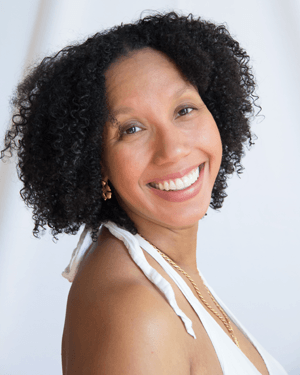 Yanique was chosen from a shortlist of seven debut novelists. The shortlisted finalists, who each received $1,000, were Rene Denfeld for The Enchanted (Harper), Smith Henderson for Fourth of July Creek (Ecco), Josh Weil for The Great Glass Sea (Grove Press), Vanessa Manko for The Invention of Exile (The Penguin Press), Ted Thompson for The Land of Steady Habits (Little, Brown), and Matthew Thomas for We Are Not Ourselves (Simon & Schuster). In July the Center for Fiction announced the longlist for the prize, which included twenty-six novelists. David Gilbert, Tayari Jones, and Margaret Wrinkle judged.
Yanique was chosen from a shortlist of seven debut novelists. The shortlisted finalists, who each received $1,000, were Rene Denfeld for The Enchanted (Harper), Smith Henderson for Fourth of July Creek (Ecco), Josh Weil for The Great Glass Sea (Grove Press), Vanessa Manko for The Invention of Exile (The Penguin Press), Ted Thompson for The Land of Steady Habits (Little, Brown), and Matthew Thomas for We Are Not Ourselves (Simon & Schuster). In July the Center for Fiction announced the longlist for the prize, which included twenty-six novelists. David Gilbert, Tayari Jones, and Margaret Wrinkle judged.




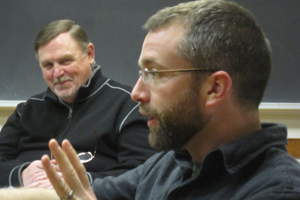
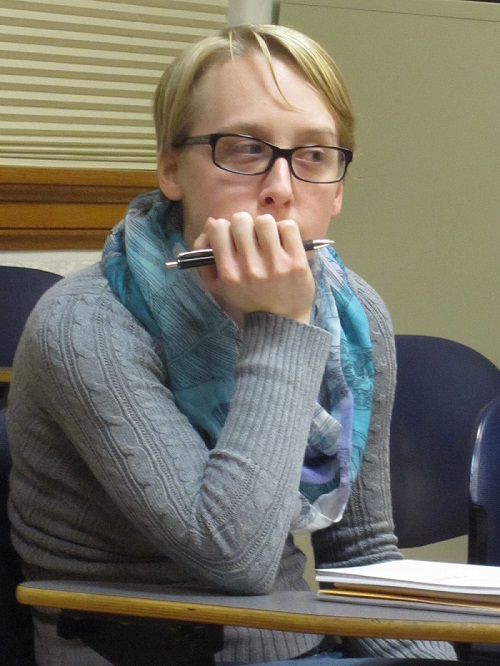
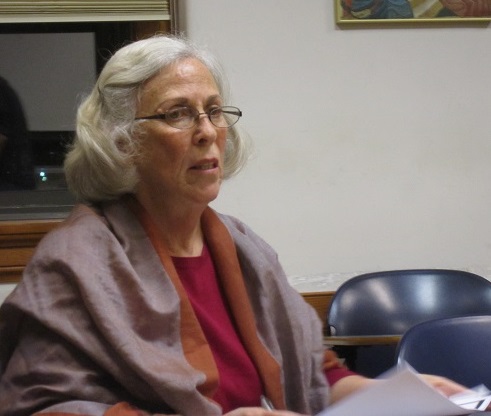
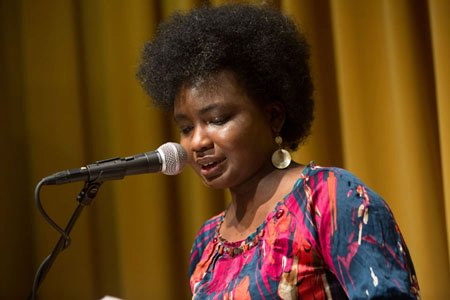
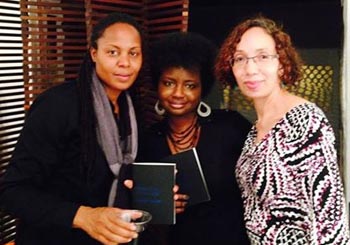
 What makes your organization and its programs unique?
What makes your organization and its programs unique?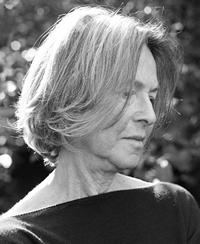
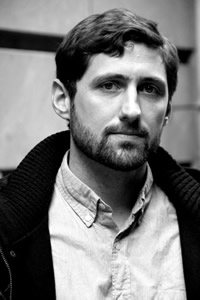
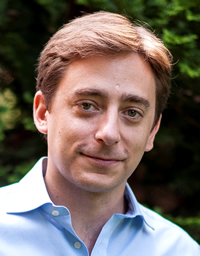
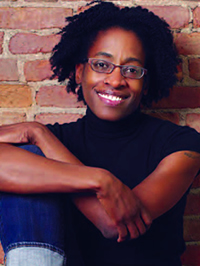
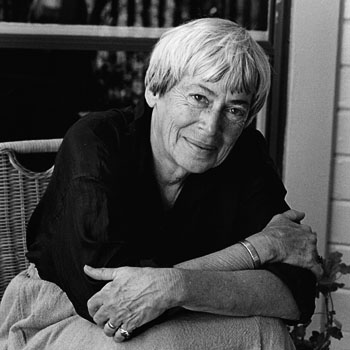 Legendary science fiction and fantasy author
Legendary science fiction and fantasy author 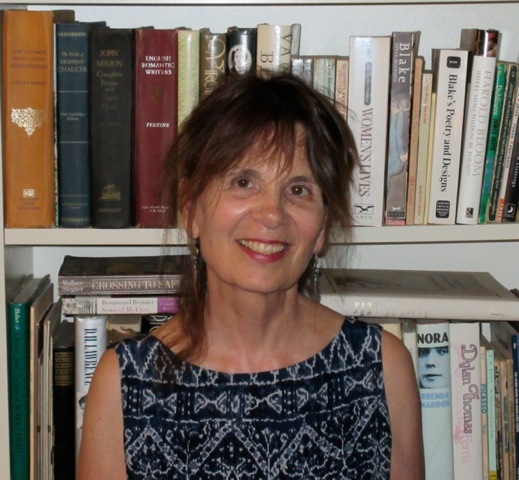 In the first poetry/writing workshop in a series sponsored by Poets & Writers at Elizabeth House in Pasadena, California, a young mother writes about a hummingbird:
In the first poetry/writing workshop in a series sponsored by Poets & Writers at Elizabeth House in Pasadena, California, a young mother writes about a hummingbird: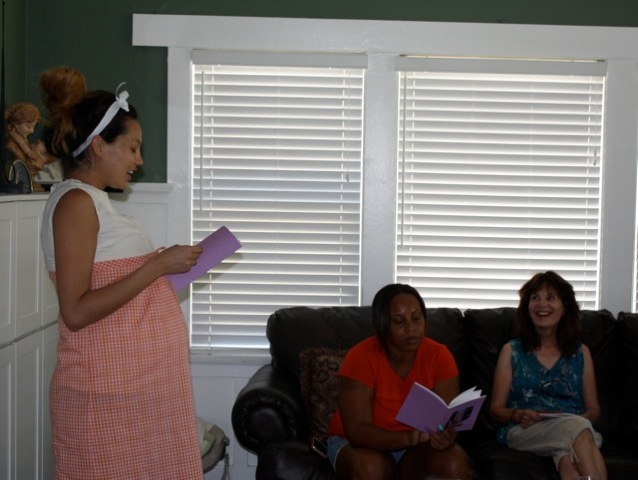 Throughout the workshops, several women told me they were so happy to be writing again and in touch with their creativity. One woman expressed her gratitude for the workshops since they were exactly what she needed at this time in her life, with a six-month-old and her uncertainty as to a job and place to live after Elizabeth House. Another woman revealed she never wrote or read poetry, but by the final workshop, she was able to express herself in a beautiful poem entitled “Life.”
Throughout the workshops, several women told me they were so happy to be writing again and in touch with their creativity. One woman expressed her gratitude for the workshops since they were exactly what she needed at this time in her life, with a six-month-old and her uncertainty as to a job and place to live after Elizabeth House. Another woman revealed she never wrote or read poetry, but by the final workshop, she was able to express herself in a beautiful poem entitled “Life.”
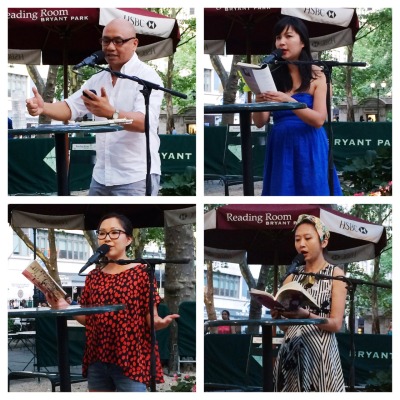
 The grants are given for short stories, essays, or novel or memoir excerpts that somehow deal with New York City. To
The grants are given for short stories, essays, or novel or memoir excerpts that somehow deal with New York City. To 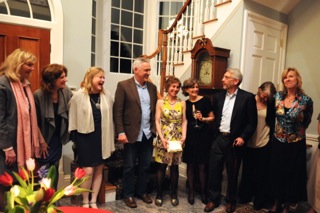
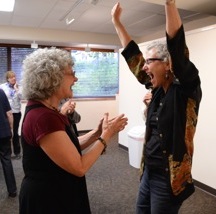
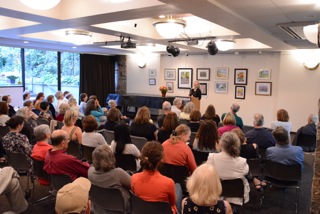
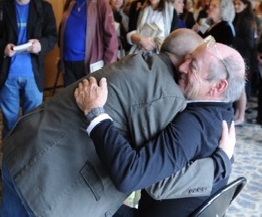
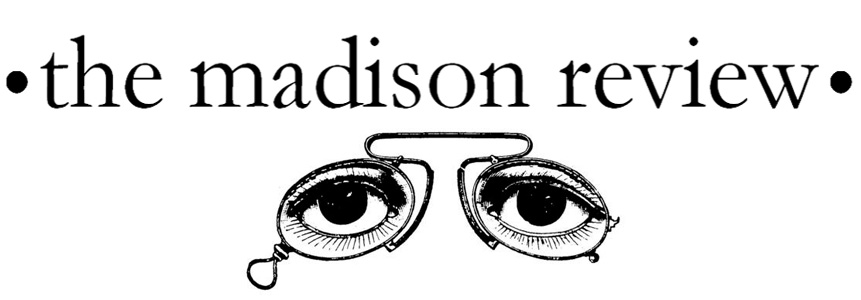
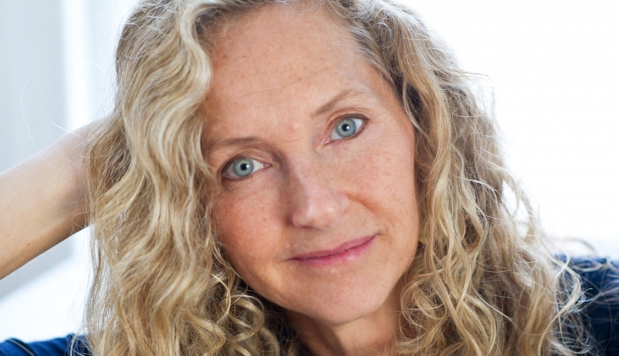
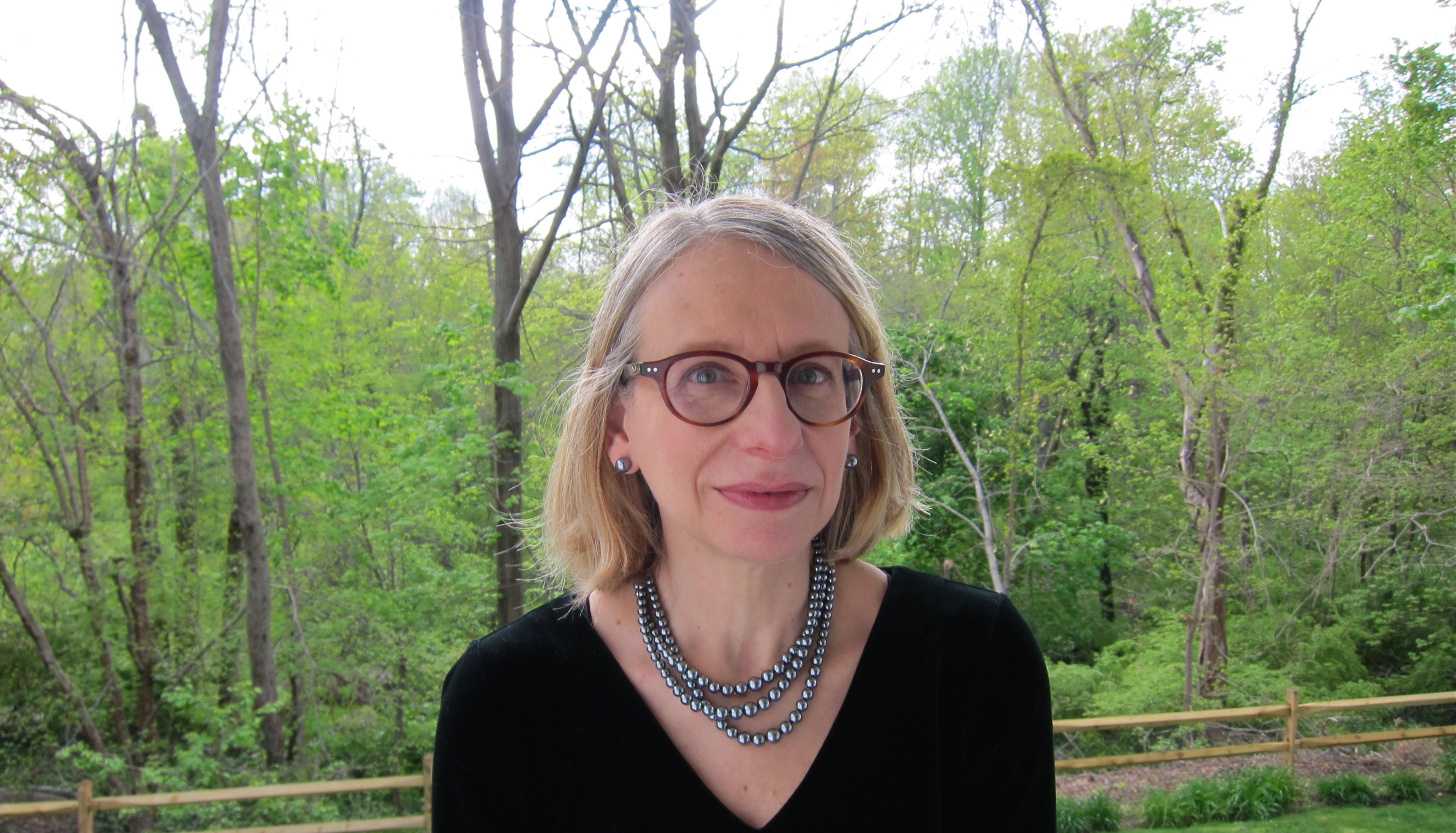
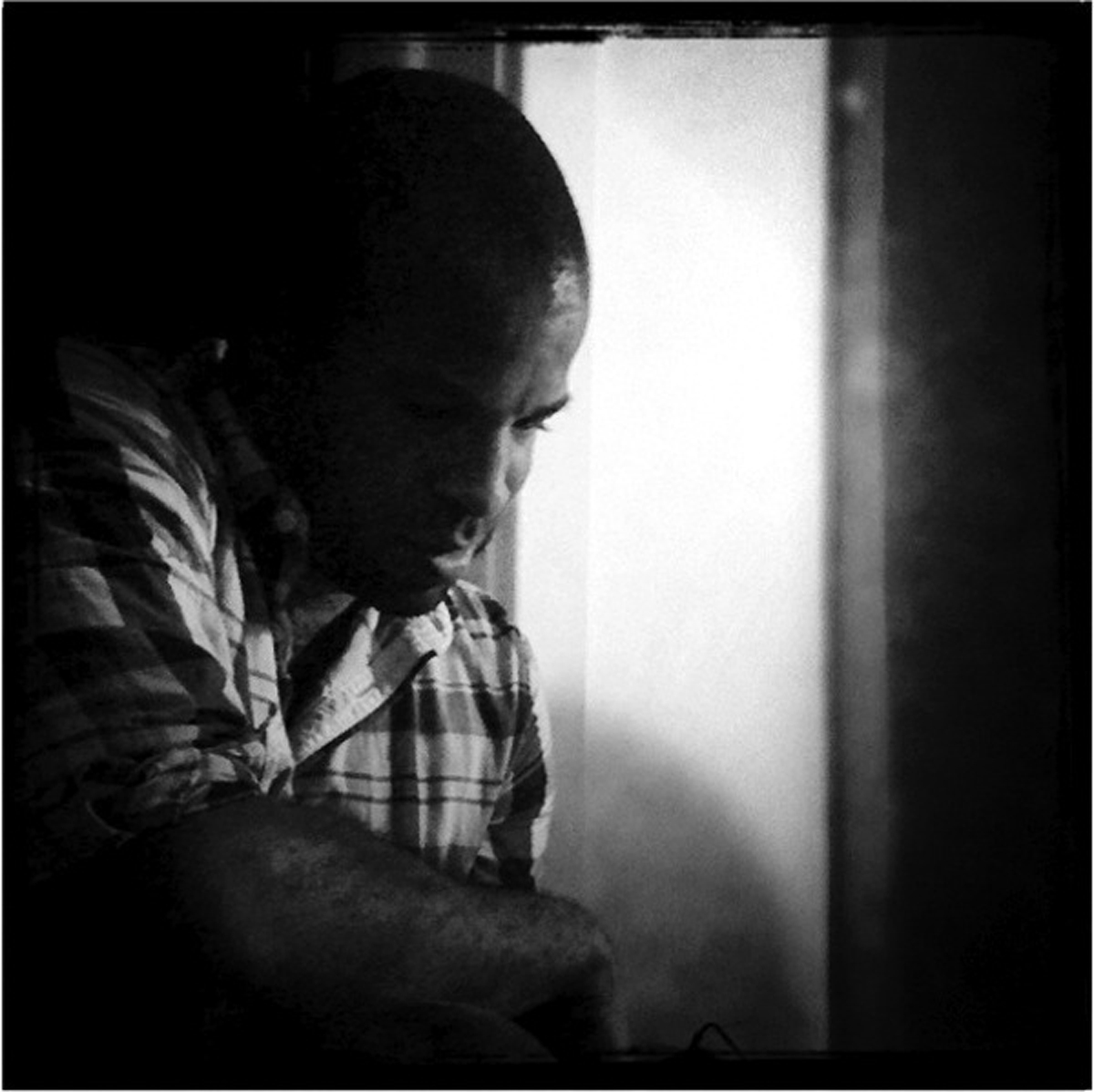 What are your reading dos?
What are your reading dos?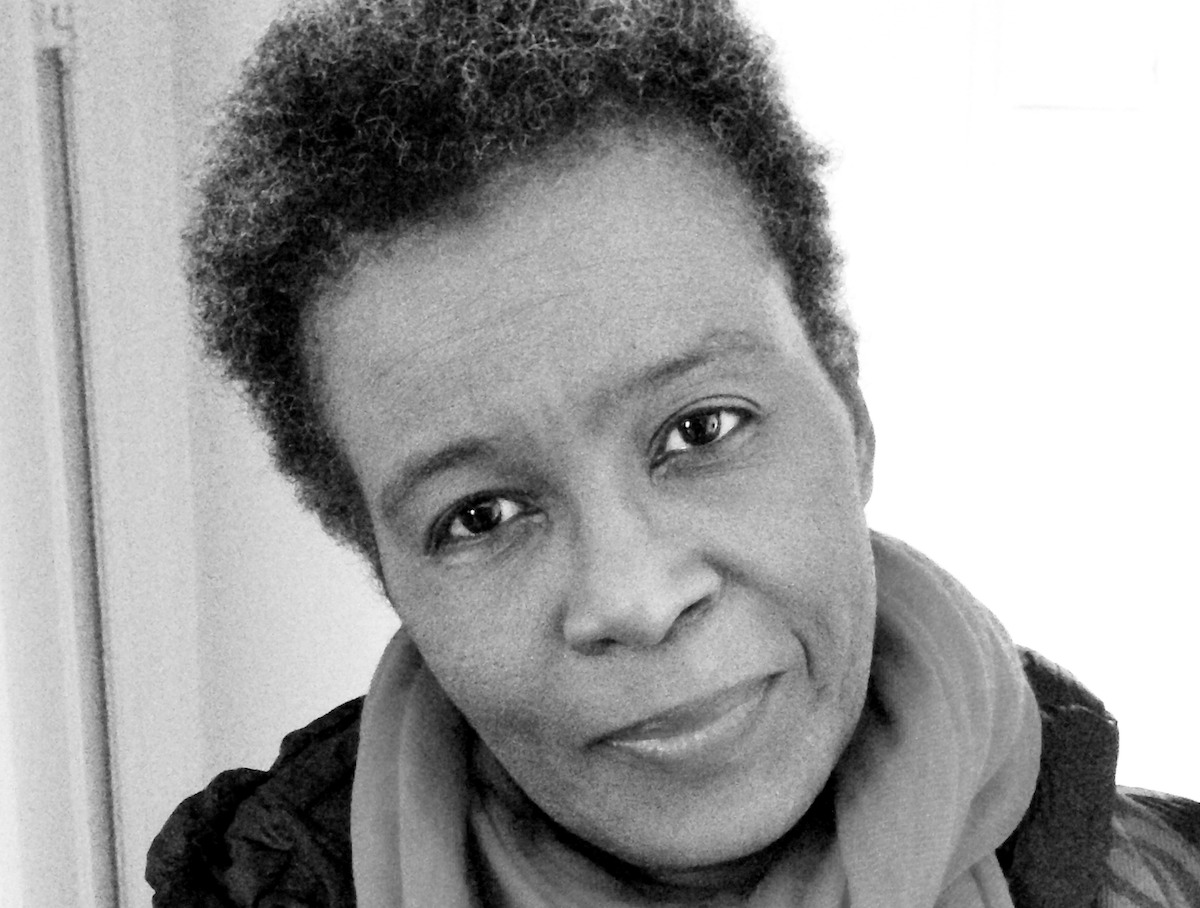 The finalists in poetry are Louise Glück, Faithful and Virtuous Night (Farrar, Straus and Giroux); Fanny Howe, Second Childhood (Graywolf Press); Maureen N. McLane, This Blue (Farrar, Straus and Giroux); Fred Moten, The Feel Trio (Letter Machine Editions); and Claudia Rankine, Citizen: An American Lyric (Graywolf Press).
The finalists in poetry are Louise Glück, Faithful and Virtuous Night (Farrar, Straus and Giroux); Fanny Howe, Second Childhood (Graywolf Press); Maureen N. McLane, This Blue (Farrar, Straus and Giroux); Fred Moten, The Feel Trio (Letter Machine Editions); and Claudia Rankine, Citizen: An American Lyric (Graywolf Press).